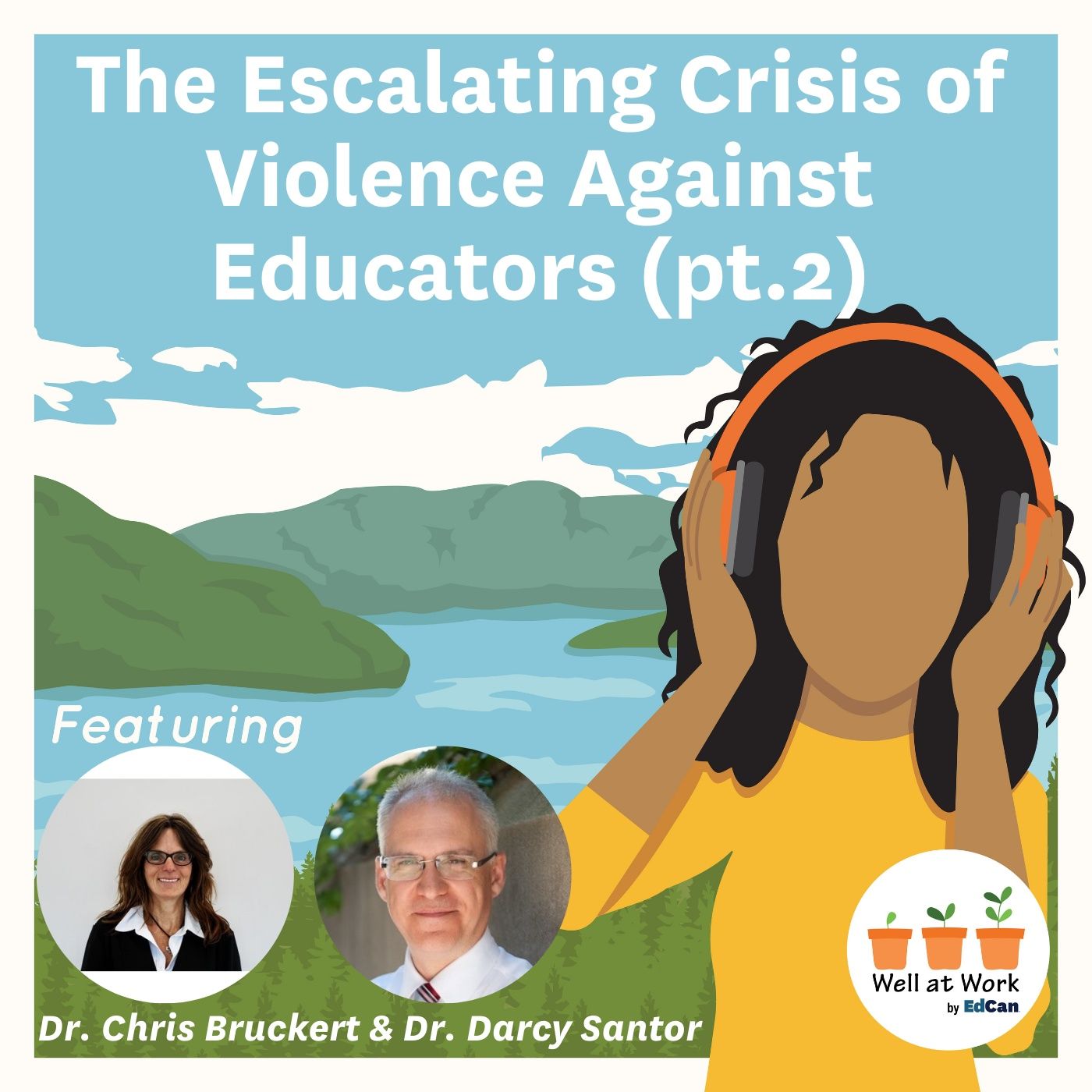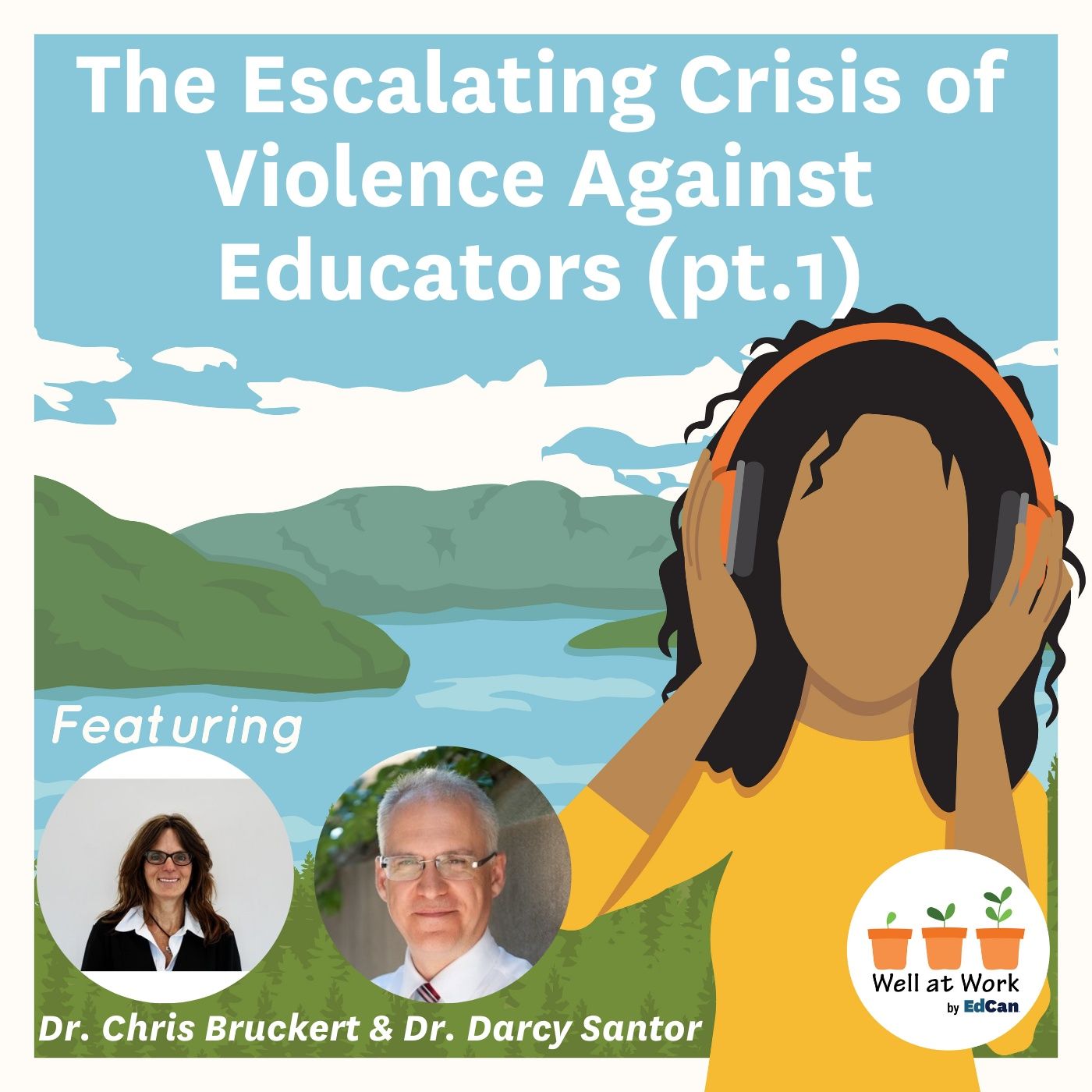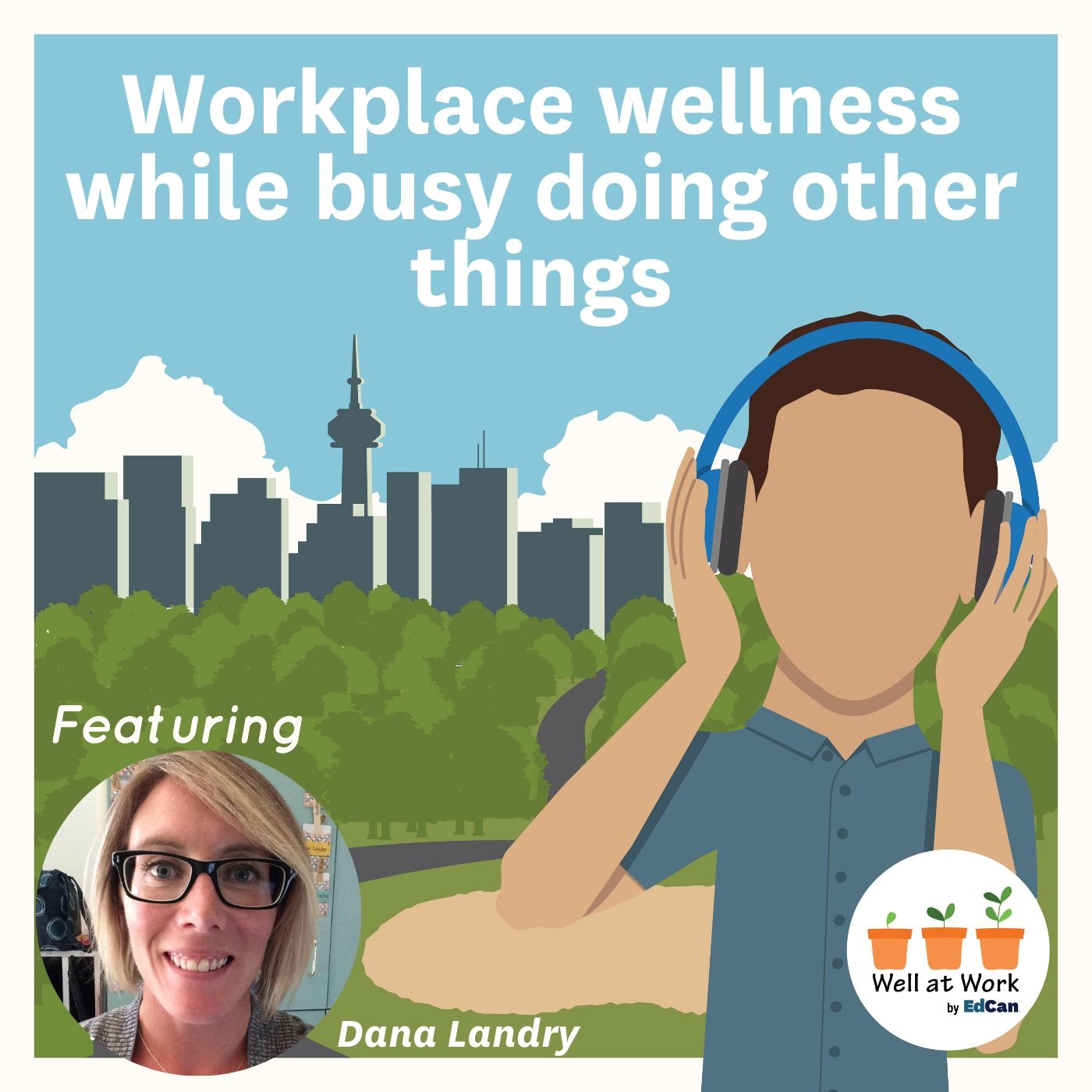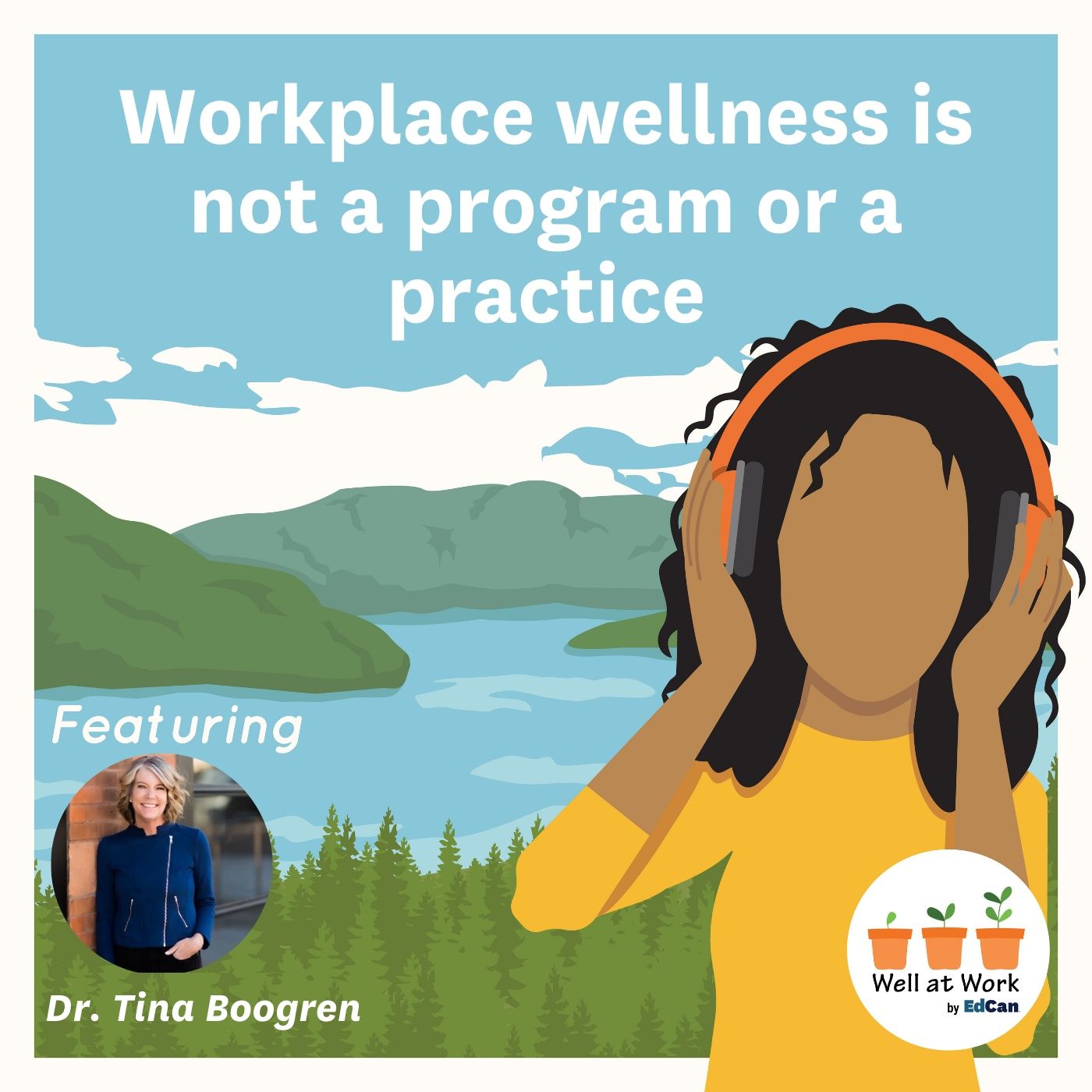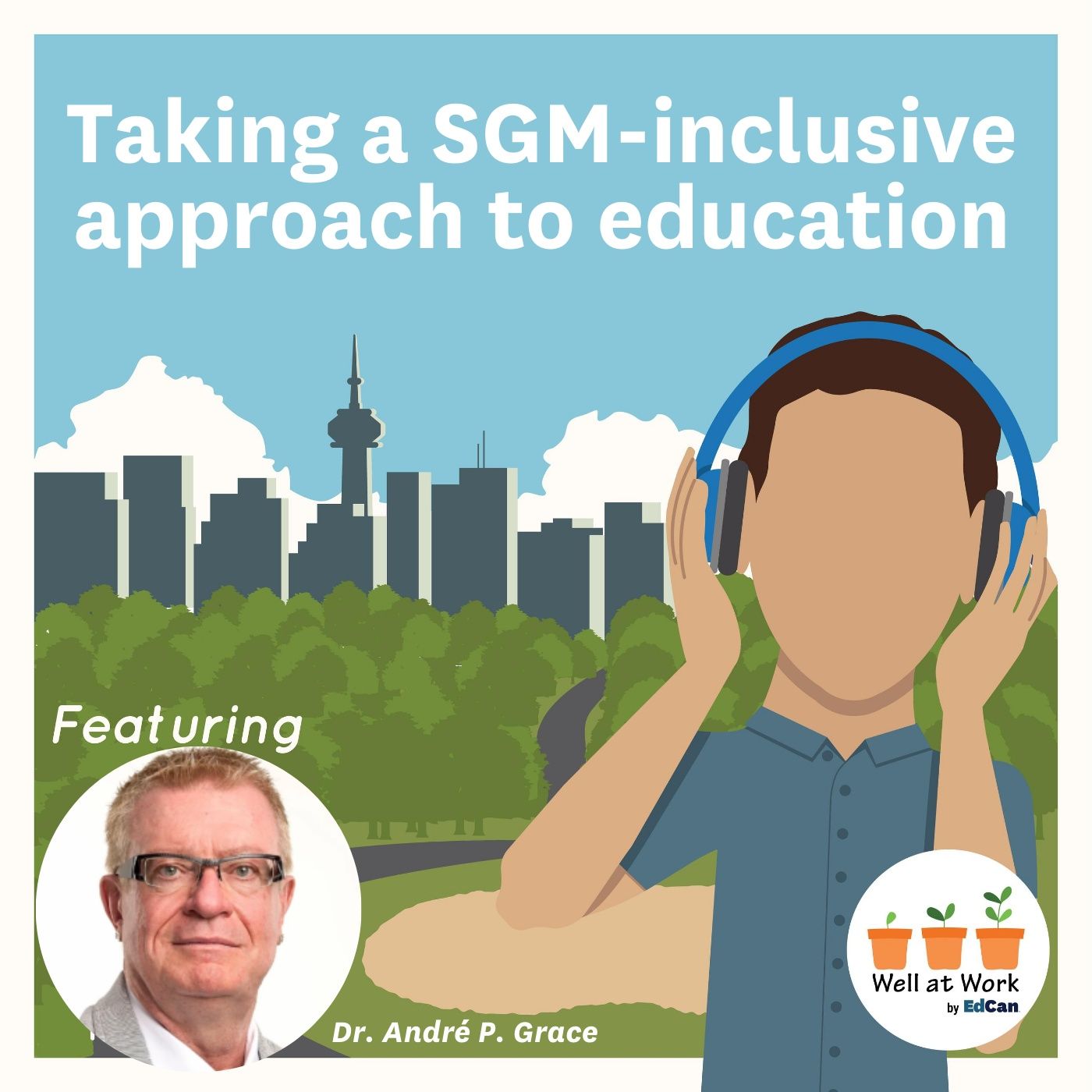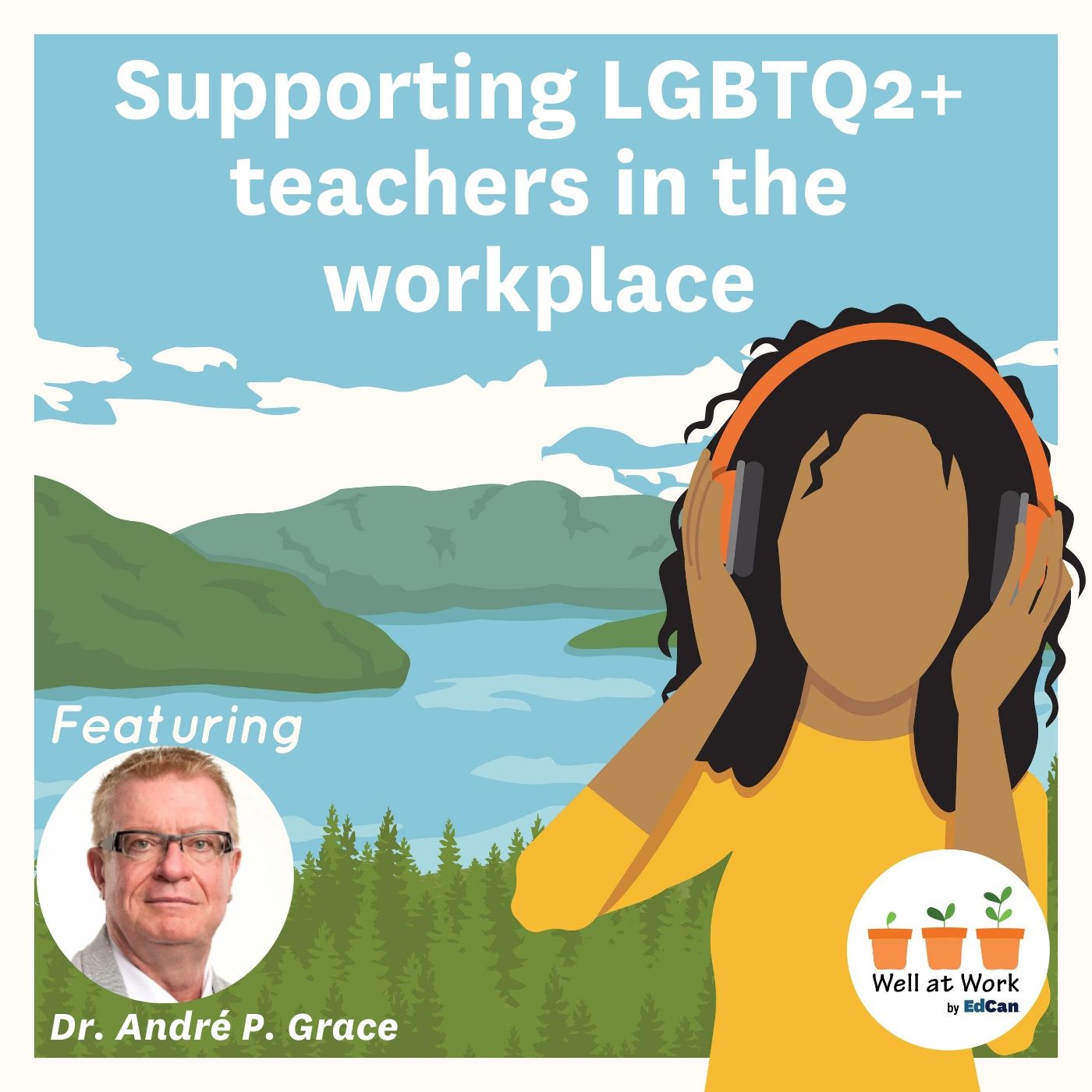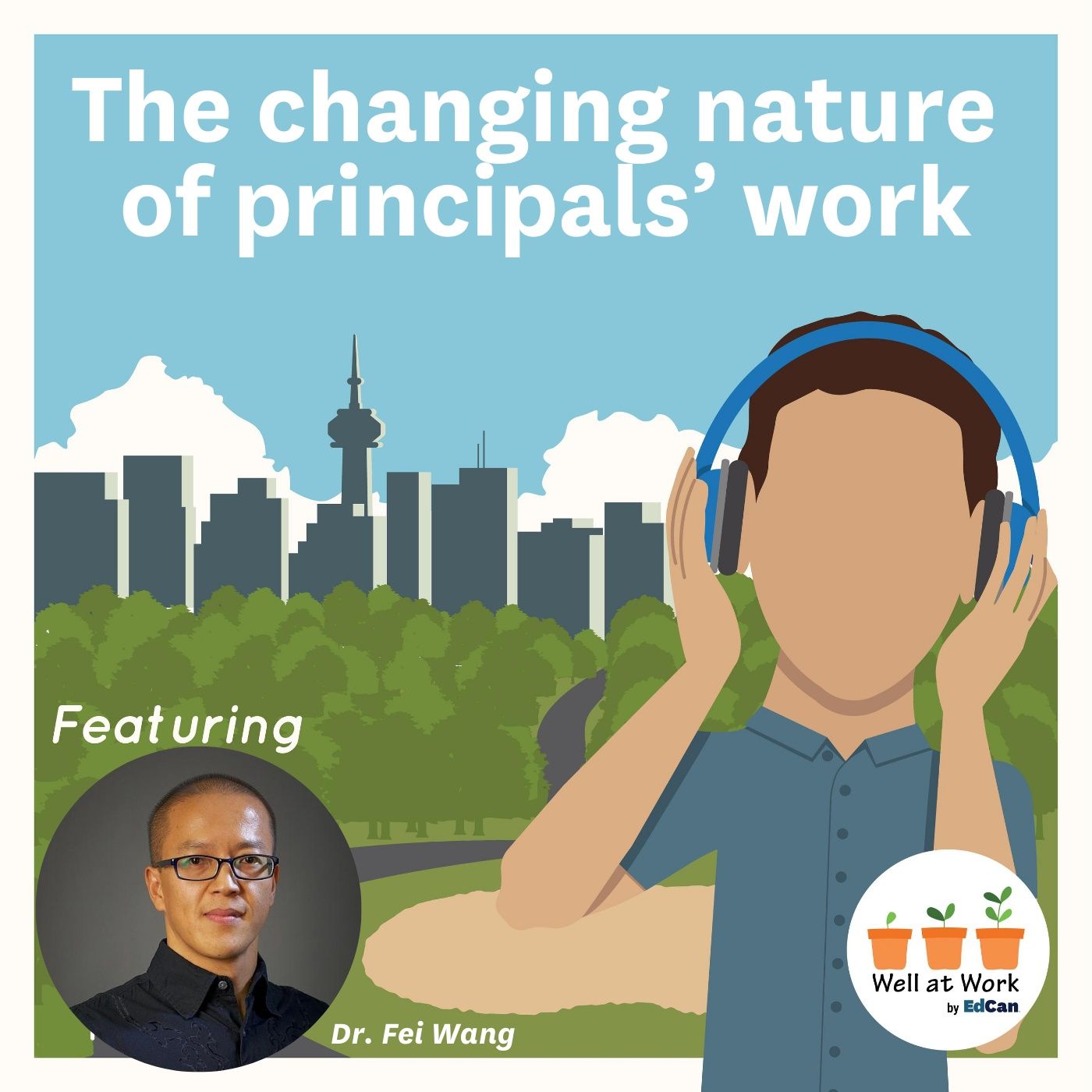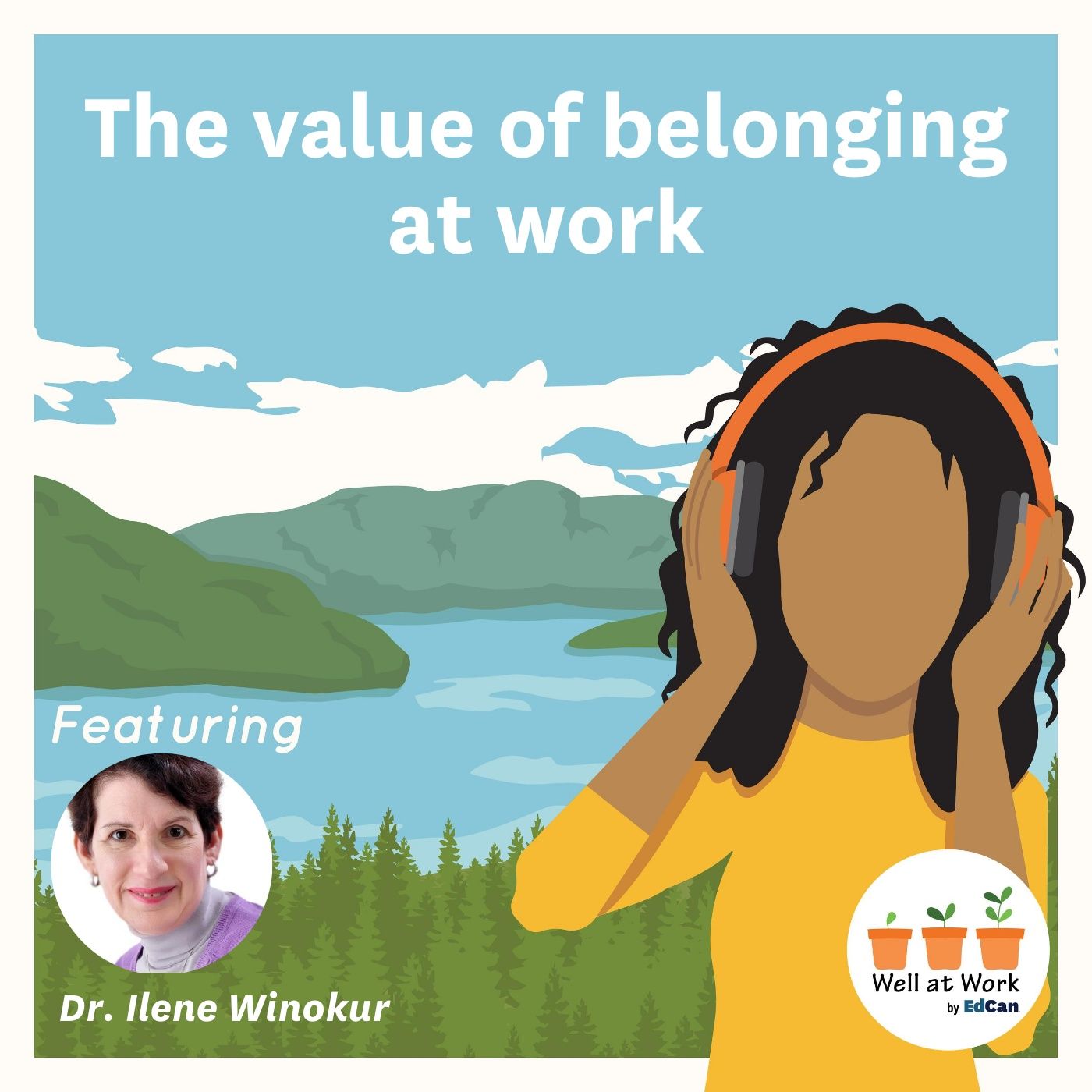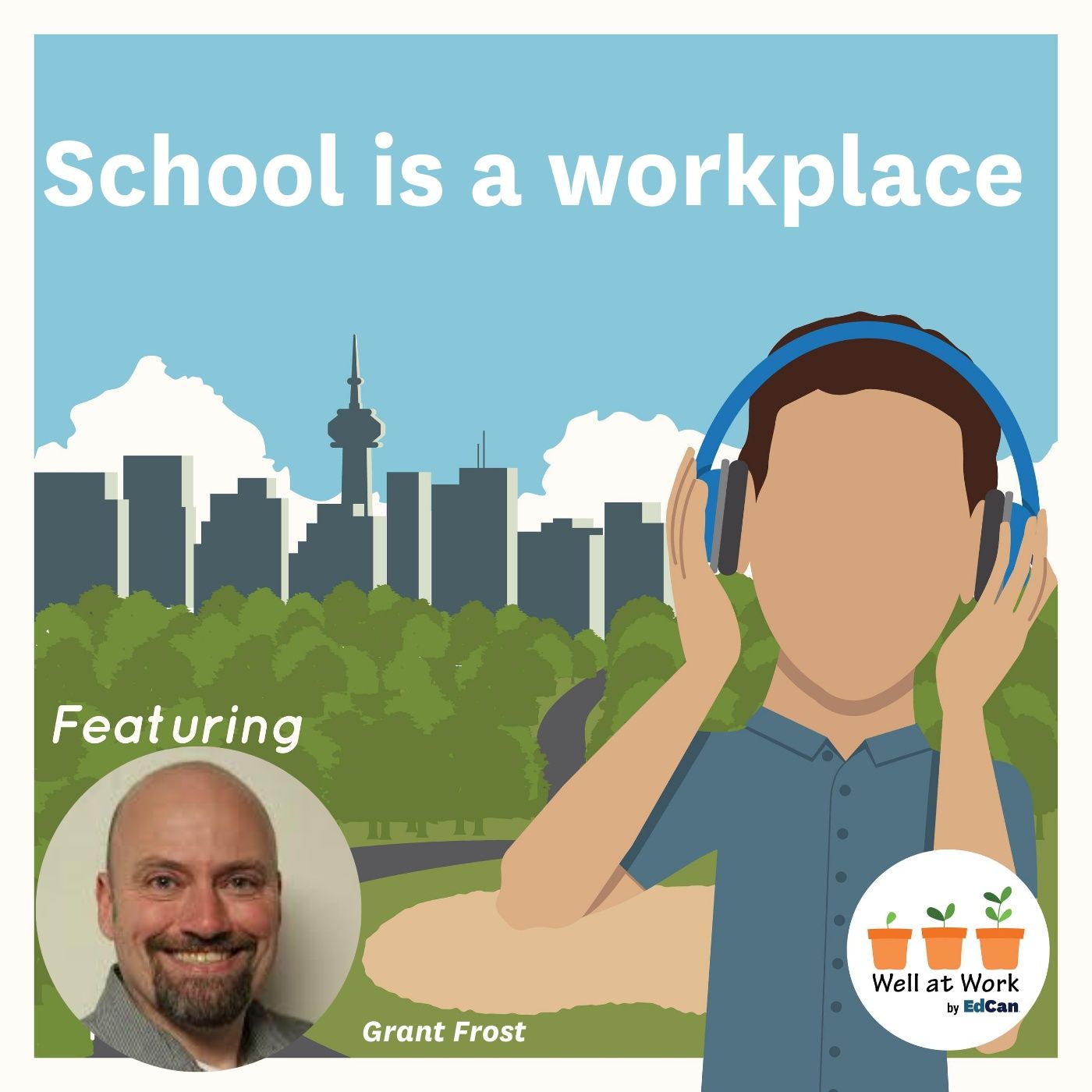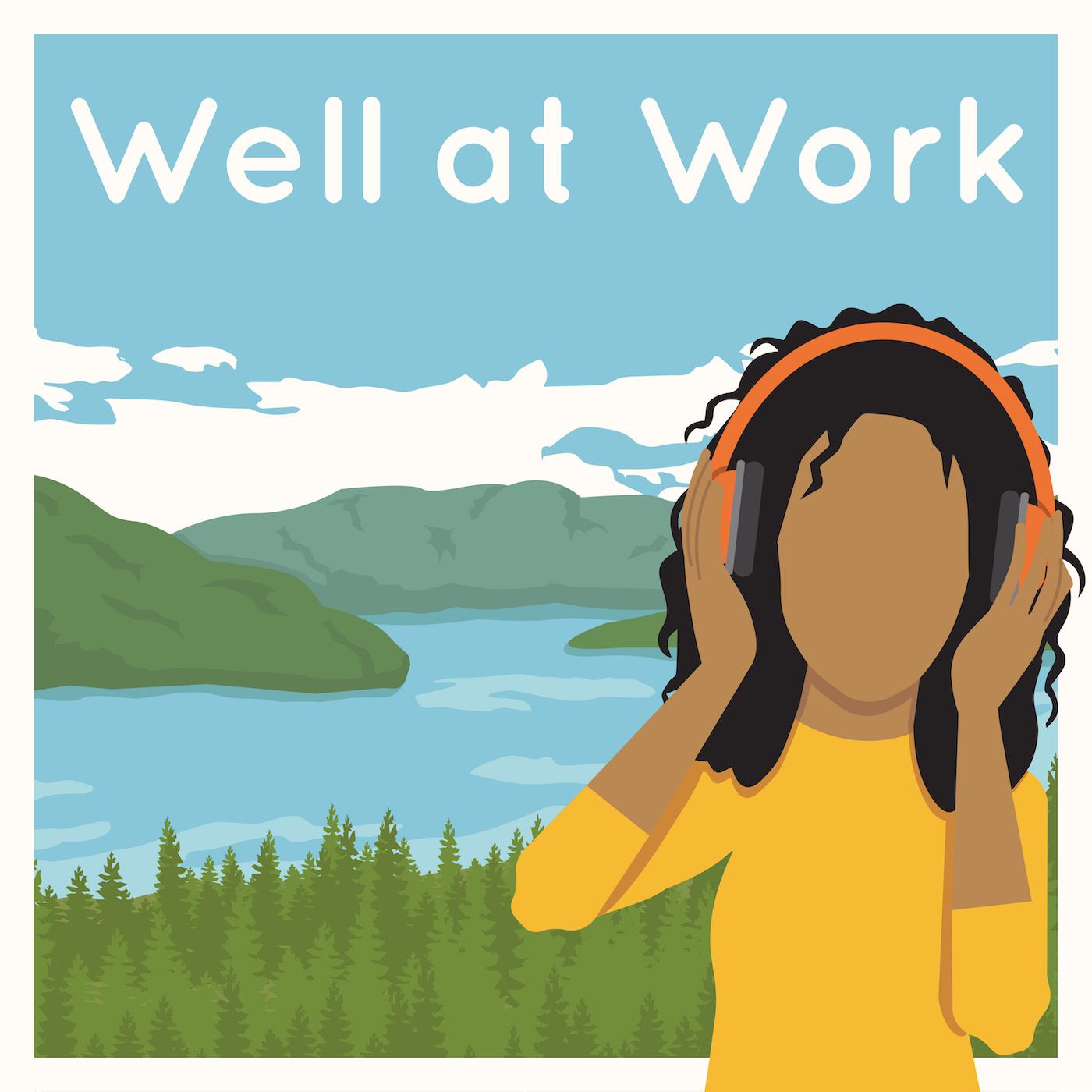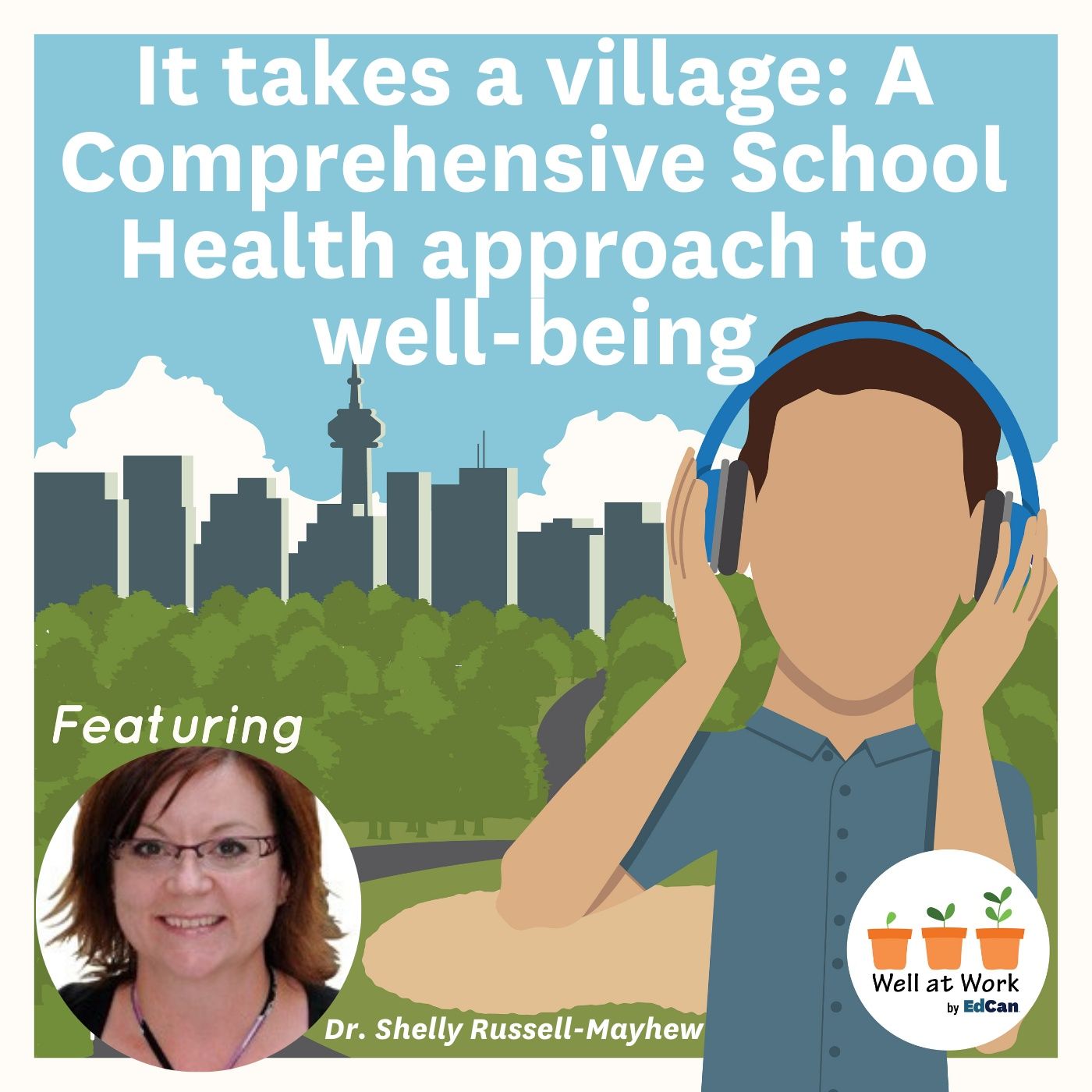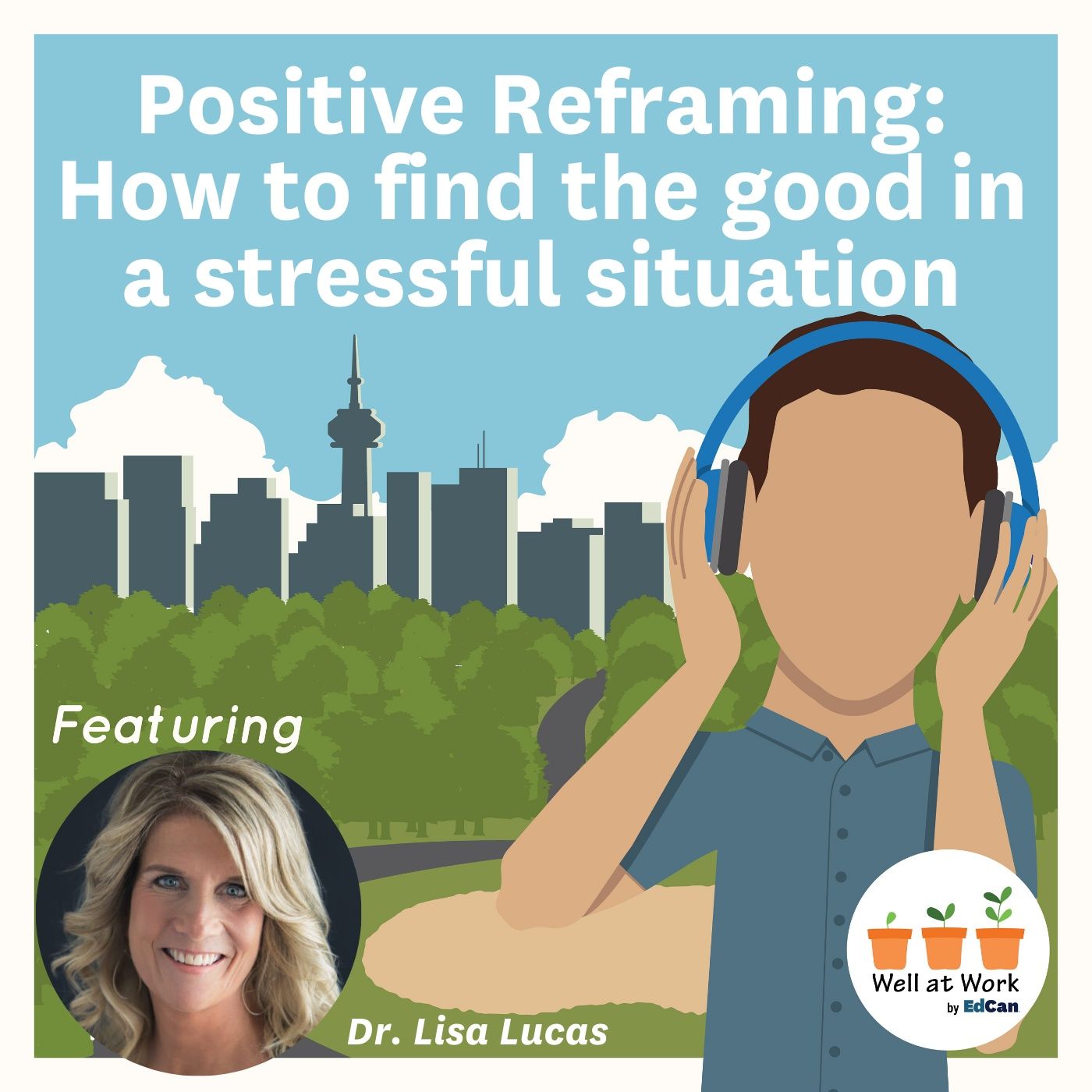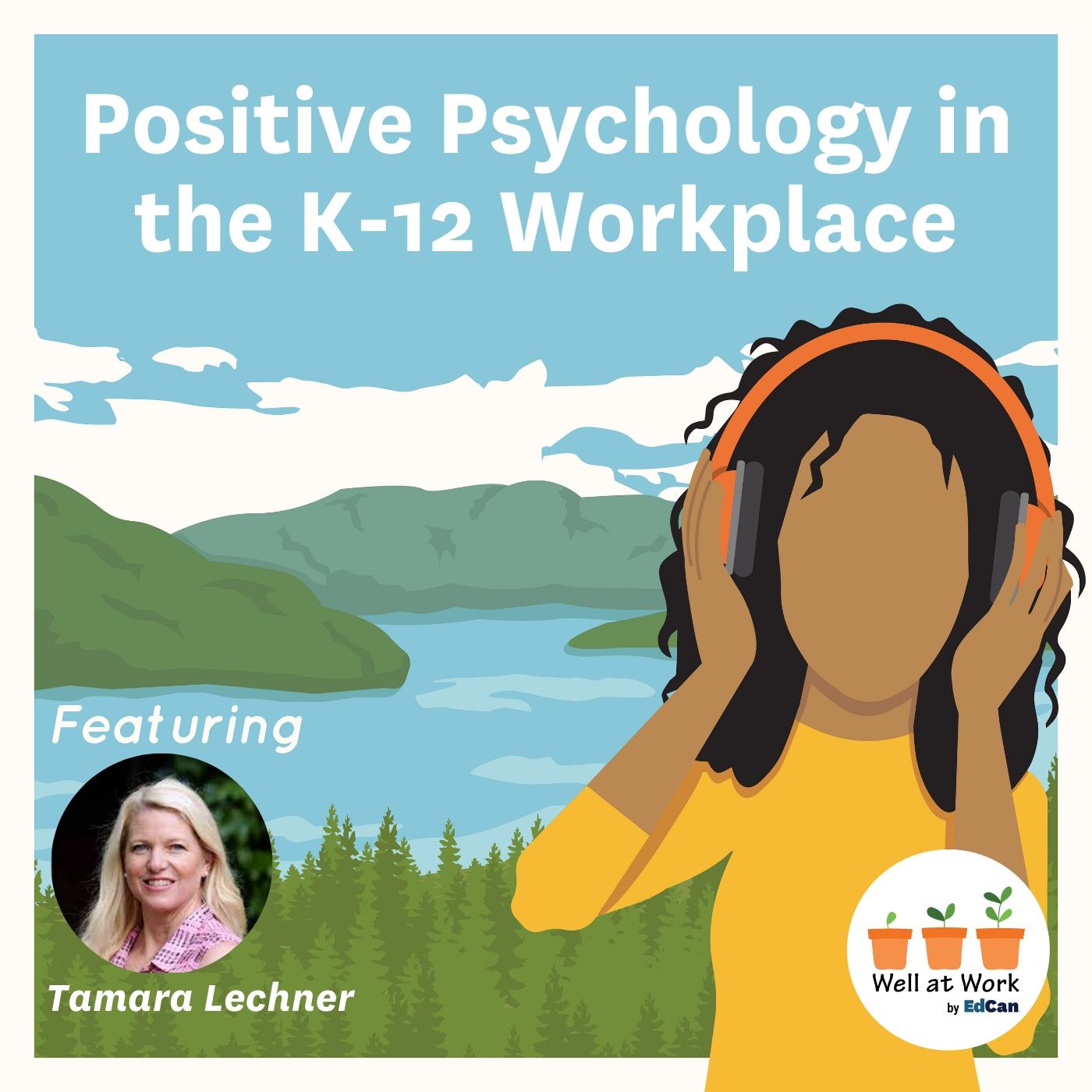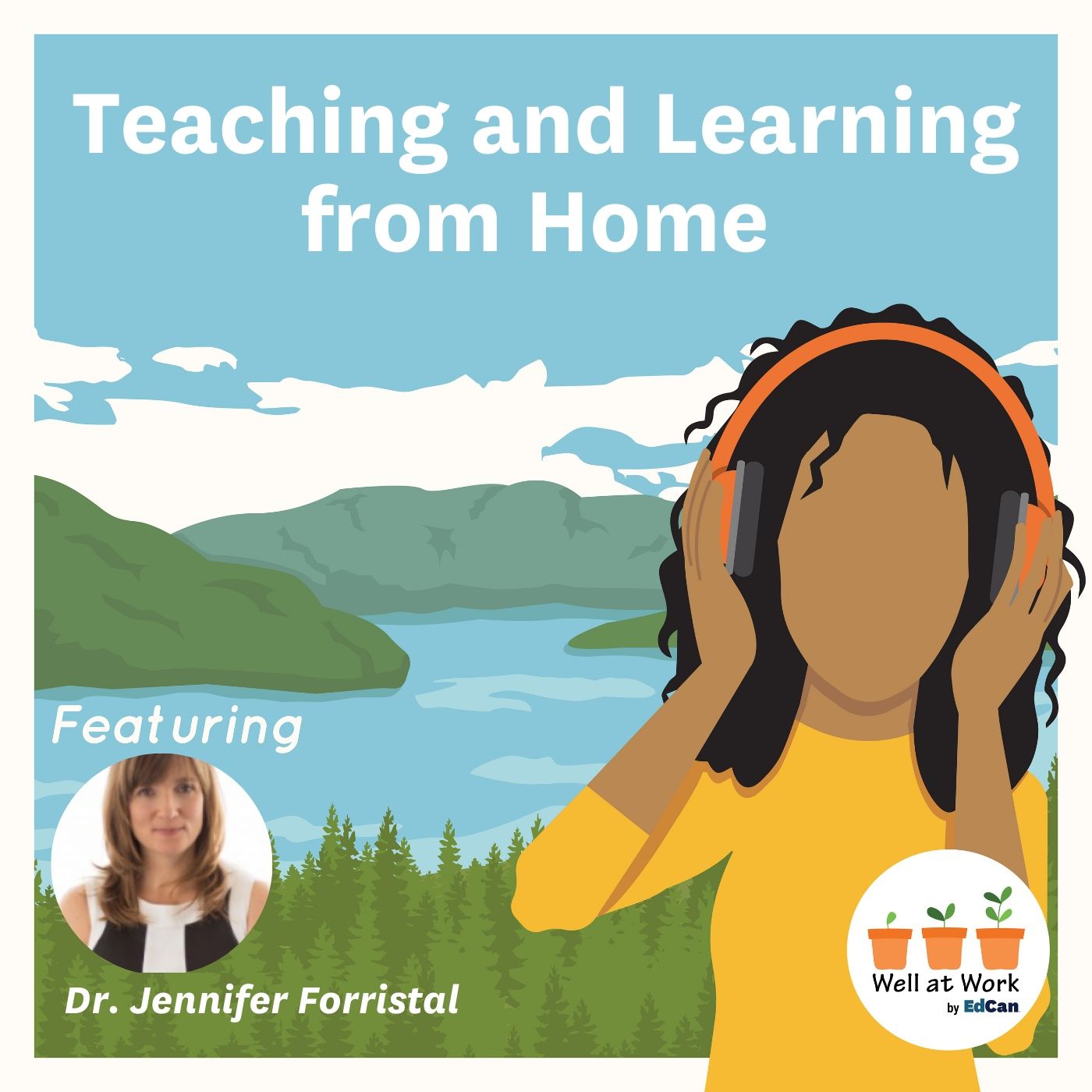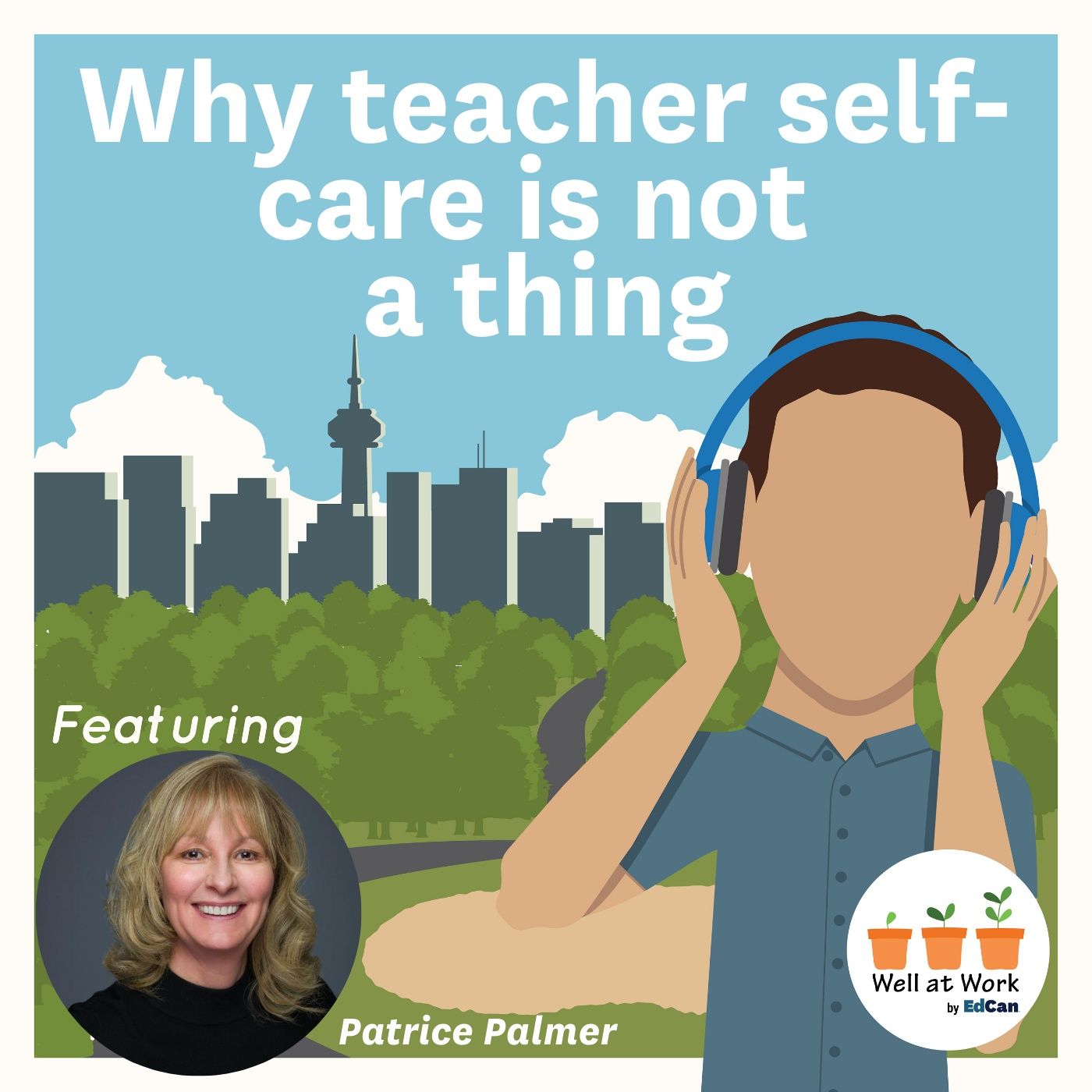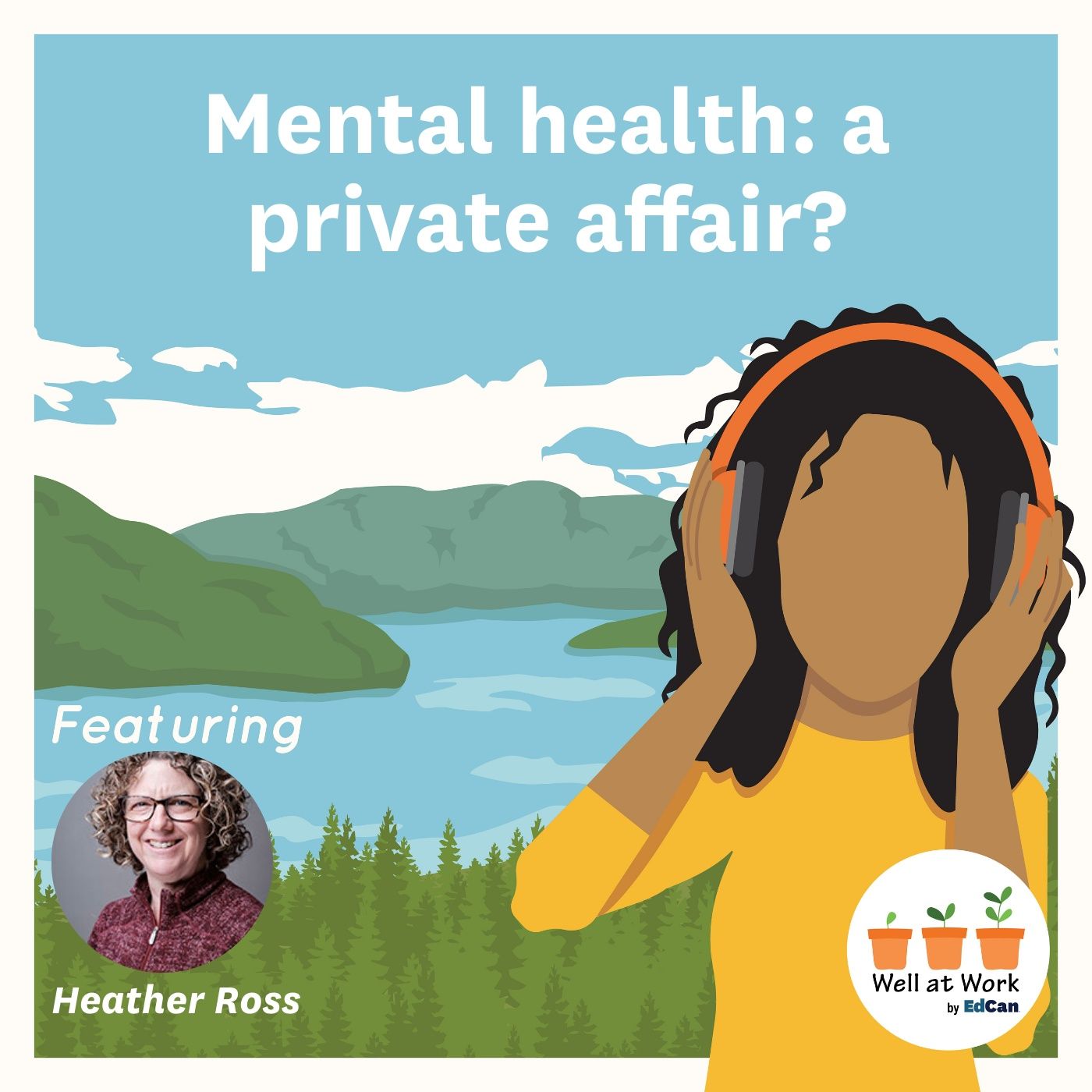Discover Well At Work - The Podcast
Well At Work - The Podcast

50 Episodes
Reverse
Is violent behaviour in our schools being normalized and even hidden. Have we thought deeply enough about what is at the root of the problem of escalating violence against teachers and school staff. Chris Bruckert is a Professor of criminology at the University of Ottawa. Darcy Santor is Professor of Psychology, Practicing Clinical Psychologist, also at the University of Ottawa.In the second of this two part series, we continue our conversation about these questions in the context of their report, The Escalating Crisis of Violence Against Elementary School Educators in Ontario. For a full copy of the report, visit: https://educatorviolence.net/
Is violent behaviour in our schools being normalized and even hidden. Have we thought deeply enough about what is at the root of the problem of escalating violence against teachers and school staff. Chris Bruckert is a Professor of criminology at the University of Ottawa. Darcy Santor is Professor of Psychology, Practicing Clinical Psychologist, also at the University of Ottawa.In the first of this two part series, we talk about these questions in the context of their report, The Escalating Crisis of Violence Against Elementary School Educators in Ontario. For a full copy of the report, visit: https://educatorviolence.net/
Sometimes workplace wellness can be nurtured while busy doing other things. That was the case for Dayna Landry and her colleagues at Aurora Elementary School in Alberta's Wild Rose School Division. Learn how their dedication to obtaining a Healthy Schools certification actually led to increased cohesion and a sense of resilience.
For Dr. Tina Boogren, self-care is not a program or even a set of practices. It's about a disposition—a way of looking at the world. It's about hanging on to your "why" and letting that guide you along the way. Follow Tina Boogren on Twitter: @THBoogren
Building a genuinely accepting and inclusive school culture is a shared responsibility. In part two of this two-part episode, Dr. André P. Grace discusses the importance of taking an SGM-inclusive approach to education and how school leaders, staff, and parents all have an important role to play in supporting and learning from the experiences of SGM students.
In part one of this two-part episode, Dr. André P. Grace discusses the work that remains to be done in providing teachers with the knowledge and resources to address SGM- inclusion and accommodation in schools. Equally important to consider is how schools support staff who identify as LGBTQ2+. But where do we begin?
Effective school leaders are key to creating healthy schools. Yet, work intensification continues to threaten principal recruitment and retention – and ultimately staff and student performance.In this episode, Dr. Fei Wang shares key findings from recent studies conducted in Ontario and British Columbia on how the role of school leaders is changing and the consequences for principal and vice-principal well-being, both professionally and personally.
Think about some of the best schools you’ve ever worked at. What made these workplaces stand out? In this episode, Dr. Ilene Winokur discusses the power of belonging in the workplace and the positive impacts it can have on K-12 staff well-being.
School is a learning environment for students – but it’s also a workplace for adults where far too many K-12 staff are experiencing unprecedented levels of stress and burnout. In this episode, educator and union leader Grant Frost discusses the important role of school leaders and districts in establishing healthy working conditions.
In part two of this episode, Elizabeth Tingle discusses ways we can begin creating a more positive narrative around teacher well-being and how doing so can transform school culture.
When we talk about teacher well-being, we often talk about stress and burnout. But what if we were to flip the script so that we talk not only about the challenges of the teaching profession, but also the rewarding aspects?In part one of this two-part episode, Elizabeth Tingle discusses the need to reframe the narrative of teacher well-being so that we’re not neglecting the positive aspects of the profession that, if reflected on more often, could enhance personal well-being.
Historically, student well-being has been the primary focus within K-12 education. However, there’s growing evidence that an approach is required that supports the well-being of both students and staff. In this episode, Dr. Shelly Russell-Mayhew discusses one such approach – called Comprehensive School Health.
Schools aren’t immune to public discourses about weight loss and body image. In this episode, Dr. Shelly Russell-Mayhew debunks common practices part of “weight-loss culture” and discusses the need for shifting the narrative to one that focuses on wellness rather than illness within the school community.
The pandemic has left many questions around what learning could and should look like as schools reopen.In this episode, Jody Nolf discusses what she’s calling “ANCHOR learning.” ANCHOR could be vital to creating a safe and structured environment for children and their families as they return in the new school year.
When we experience a stressful situation, it can launch us into a spiral of negative thoughts and reactions, impacting our overall well-being. How then do we address this and focus on turning a problem into a solution? According to Dr. Lisa Lucas, the answer is simple, yet so powerful – reframing.
Tamara Lechner, Director of the Center for Positive Education, discusses the benefits of positive psychology in the work of K-12 school leaders and staff. Find out how incorporating the tenets of positive psychology into school team practices can lead to more meaningful conversations, team bonding, and a shared vision that will heighten everyone’s sense of well-being in the K-12 workplace.
Amid the COVID-19 pandemic, we are seeing a rise in a little understood phenomenon among K-12 educators called “demoralization.”
COVID-19 has brought educators and their families together in the same space almost all day, every day. Homes are now living spaces, working spaces, and learning spaces, where educators are constantly switching between different tasks and wearing multiple hats. Dr. Jennifer Forristal, a school wellness specialist, discusses some of the challenges educators are currently facing and shares important strategies that they can use to look after their well-being as they work from home.
Stress and burnout led Patrice Palmer to leave the teaching profession after a 20 year-long career. Although she had attempted to return to part-time teaching, Patrice never regained her passion.Why does teacher self-sacrifice appear to be the norm rather than the exception? In this episode, Patrice Palmer explains why it’s critical to avoid burning out in the first place and to find ways to practice self-care amid the demands of the teaching profession.
Heather Ross shares what it’s like to open up to your colleagues about your personal struggles with mental health.


